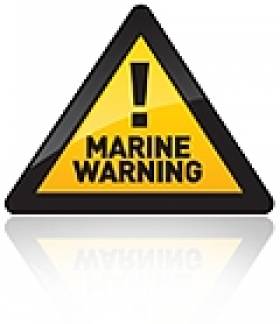Displaying items by tag: Dyslexia
Marine Notice: Clarification Of Dyslexia Policy for Maritime Training
#MarineNotice - Marine Notice No 65 of 2013 gives notice to all masters, officers and seafarers in the Mercantile Marine and to those involved in maritime training and medical assessments of clarification of the dyslexia policy for examination and assessment procedures.
1 Summary
1 Examinations require students to demonstrate knowledge and understanding of the subject through timed assessments. During the examination students are expected to select and manipulate thoughts and transfer these concepts into written format. This process emphasises a dyslexic student’s difficulties.
2 Candidates undertaking study and written examinations for Bachelor Degrees in Nautical Science and Marine Engineering at the National Maritime College of Ireland (NMCI) may avail of the NMCI policy and procedures relating to examinations set out by Cork Institute of Technology.
3 The courses of study mentioned above normally lead to a career at sea and in order to obtain a seafaring qualification or Certificate of Competency further oral and written examination is required by national and international legislation. Seafaring is a regulated profession, and examinations leading to Certificates of Competency in the Mercantile Marine and Fishing Industry are conducted by NMCI and Bord Iascaigh Mhara (BIM) respectively, on behalf of the Department of Transport, Tourism and Sport (DTTAS) which has responsibility for regulation in this area, and ensuring safety of life at sea and pollution prevention.
4 Candidates undertaking written examinations conducted by the NMCI, or BIM on behalf of the DTTAS who have been diagnosed as dyslexic by an educational psychologist may be allowed an extra 10 minutes for each hour of normal examination time, and/or the use of acetates or tinted film if required.
5 The time allowance is applicable only to those professional written examinations leading directly to a deck or engineer certificate of competency, and does not apply to ancillary courses such as radio certificates, first aid etc.
6 Where possible, candidates having extra time may be accommodated in a separate examination room, or at the back of the room, so that they are not disturbed by the main body of students departing at the end of normal examination time.
7 Given the safety critical nature of the tasks which holders of a Certificate of Competency perform, and the conditions under which they carry them out, the use of readers, amanuensis (scribes), computers or other aides that could not reasonably be brought to sea and used under emergency conditions will not be allowed.
8 Allowances may be made by Examiners for spelling errors and composition of passages, provided that the meaning of the answer is clear to the Examiner. Clerical errors in safety related calculations will be dealt with in the same way for all candidates.
9 Candidates that have been diagnosed as dyslexic must have documented written proof of this diagnosis, in the form of an assessment report, if they wish to avail of extra time.
10 Candidates wishing to apply for extra time should contact their personal or course tutor who will guide them through the procedure.
11 Some groups of examinations must be completed within a two year period prior to the issue of a Certificate of Competency - no concession is granted in respect of this requirement.
2 Initial Action
1 If you think that you may be dyslexic, there are a number of online tests that may help you decide if formal assessment is appropriate.
2 If you have been clinically assessed as having dyslexia and wish to request additional examination time, your initial action should be to contact your personal or course tutor. They will be able to guide you through making the application.
3 Assessment Report
1 For the purposes of gaining additional time in written examinations leading to a Certificate of Competency, an assessment report will be accepted from a qualified Educational Psychologist. Further information may be obtained from the Dyslexia Association of Ireland and the Psychological Society of Ireland.
2 Assessments must have been carried out as an adult (post 16 years old), include cognitive assessment, and clearly identify dyslexia as a significant learning difficulty.
3 All candidates attending courses of study leading to Certificates of Competency are strongly recommended to obtain a Certificate of Medical Fitness for service at sea prior to commencing a course. The medical examination for a Certificate of Medical Fitness does not test for dyslexia; however seafarers with dyslexia may have difficulty with vision testing, and should discuss this with the approved doctor conducting the examination.
4 Administrative Procedures
1 Dyslexic candidates putting themselves forward for DTTAS examinations should notify the examination centre at least 2 weeks in advance of the examination, together with supporting documentation. NMCI/BIM will liaise with the Department of Transport, Tourism and Sport and advise the examination centre invigilator of any additional time granted.
2 Once an increased examination time has been agreed it will remain valid for all future examinations until the tenth anniversary of the assessors report, without reference to the DTTAS.
3 Examination centres may seek to recover the additional costs incurred by the supervision of the additional examination room and/or examination time. You should talk to the examination centre concerned to find out their policy.
5 Examination Results
1 Once a candidate has been given additional time in an examination, they may not have their dyslexia raised as an issue for special considerations.





























































